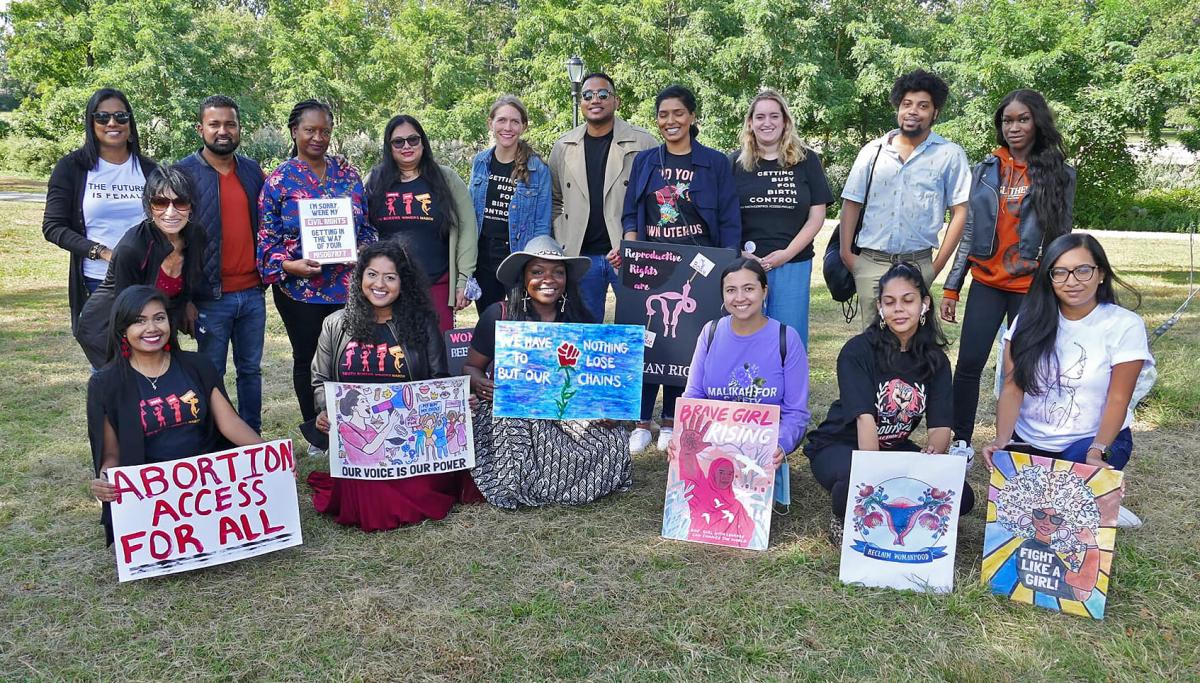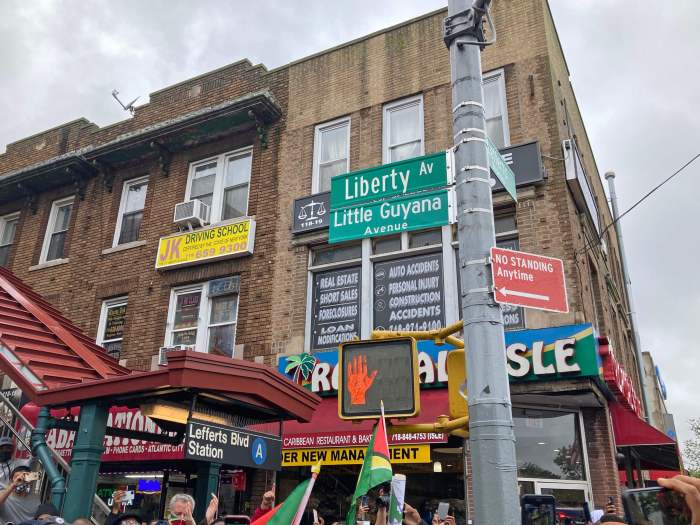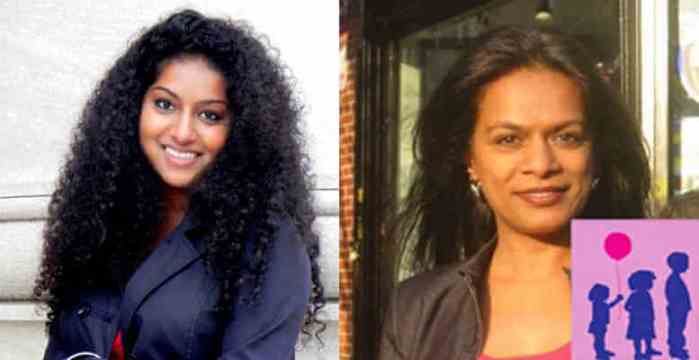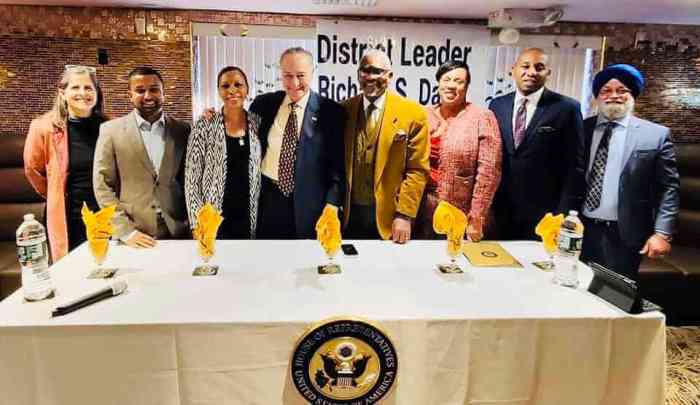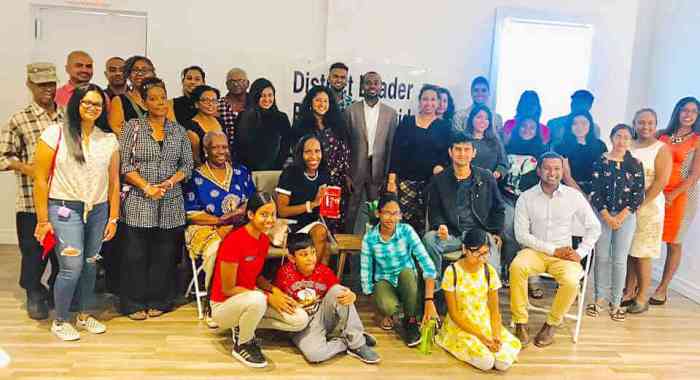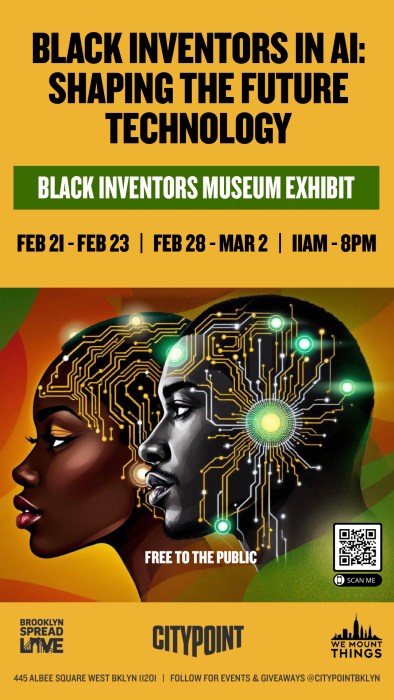The South Queens Women’s March, founded to celebrate the resilience of women, girls and gender-fluid people in the community despite struggles, joined 600 plus events across the country to make its resistance loud and clear, during its first reproductive justice rally and speak out at Brookville Park, 147th Avenue, Queens.
Aminta Kilawan-Narine, founder and director of South Queens Women’s March told the Oct. 2, gathering.
“We exist to connect women, girls and gender-fluid people with the tools they need to thrive. This includes safe, affordable and legal access to abortion. There has never been a more critical time for people to show up in support of our health care, our rights, and our freedoms. That’s why we are holding this rally,” said Kilawan-Narine
“Last week, the House of Representatives took a step towards securing our reproductive freedom by passing the Women’s Health Protection Act. But we know the harsh truth. There is a difficult road ahead to pass the bill in the Senate and to protect our right to have an abortion,” she added.
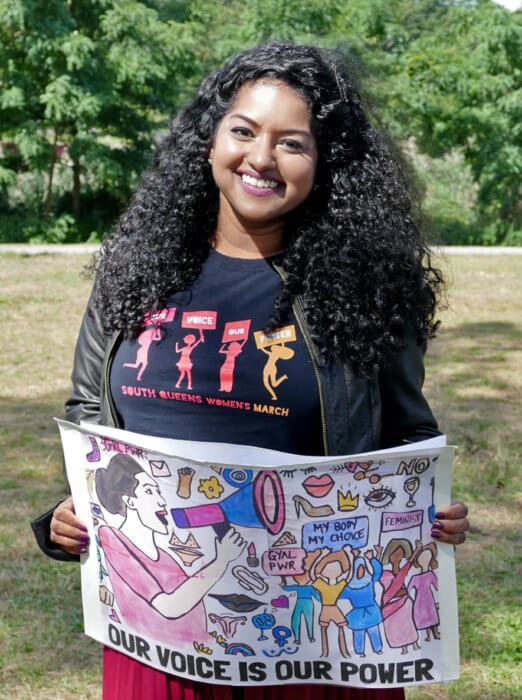
“We are reckoning with a Supreme Court that leans conservative and have many anti-abortion extremists sitting in the U.S. Congress. We must raise our voices to defend and protect our rights under Roe v. Wade. And this rally isn’t just about access to abortion. We know that systemic racism permeates access to reproductive care in general, and disproportionately affects the Black community. Black people in this country are 40 percent more likely to die of breast cancer than white people. They’re 243 percent more likely to die from pregnancy or childbirth related causes than white people. Why? Because the system is racist,” said Kilawan-Narine.
Kilawan-Narine, a New York based attorney, said the rally featured messages from South Queens Women’s March leadership, South Queens Women’s March members reproductive rights advocates, local activists and organizer Debora Chaitlall.
District Leader Richard David said, “There is a Christian religious extreme element to not just women’s rights and abortion access but the laws that govern this country. It is fundamental that we understand the movement that the far-right Christian extremists have taken. It wasn’t just storming the Capitol, it wasn’t just trying to limit people’s rights across the board, and it’s not just all people, it’s people that look like you and me. It is so fundamental for us to call it out.”
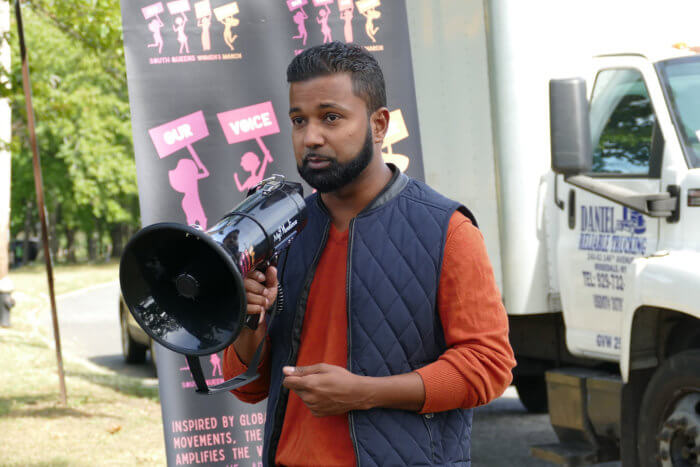
Tannuja Rozario, founding board member of South Queens Women’s March and reproductive rights activist said, “It is so important for our community to come together during this time. Just this year alone, 90 abortion restrictions have been enacted and states continue to ask the Supreme Court to overrule landmark decisions in Roe v. Wade and Planned Parenthood v. Casey. The communities that are most impacted by these restrictions are our own communities — women of color, immigrants, the LGBTQ community, and working-class people.”
“Restrictions on abortion and barriers to birth control are not new, but those who want to control our bodies are becoming more creative in their mission. Organizations like the South Queens Women’s March are so important in the fight to protect reproductive freedom. They are doing the work to increase awareness of and access to reproductive health care,” said Jenna Bimbi, executive director of NY Birth Control Access Project. “In New York there are laws protecting the right to an abortion. but we can still do more. Both for New Yorkers and for people from other states, as New York has done with abortion funds.”
“Reproductive rights have historically catered to white supremacy and has left Black and Brown women behind,” said Anusuya Singh, South Queens Women’s March member and director of Mutual Aid at Southside Action Pact.
Christina Motilall, South Queens Women’s March member and medical student said, “A lot of people might think what’s the point in rallying or meeting outside in a park? What difference would this make? Will this change any laws and bills that we can actually see? Maybe. Maybe us coming together and supporting things that mean something to us will bring forth change. But without it, there is no maybe, there is no hope or wishful thinking for a change.”
Brendez Wineglass, vice president of the NYC Black Women’s Political Club said, “We [Black Women’s Political Club] are a civic social not-for-profit focused on addressing the issues of black women every day and encouraging the advancement of women to office to service of change. Honored to support the SQWM on this repro justice rally. This topic is so important as a conversation that takes place among those who deal with the problem every day. This umbrella issue is multifaceted and directly impacts our communities right here in Rosedale. We are minutes away from JFK where so many immigrants arrived. Their stories alone are the reasons we must be active in civic advocacy. When I think about women and reproductive rights, I think about access first. We need access for us to even make a choice.”
“Huge thanks to South Queens Women’s March for organizing the rally. It’s so powerful to be part of a mobilization that is taking place across the country simultaneously in this national outcry for reproductive freedom,” said Deena Hadhoud, program and operations manager at Malikah.
“It is equally important to be having these conversations about building power and safety for our communities, here in Queens,” adding that Malikah is a global grassroots movement, building power and safety for communities through self-defense and other gender justice programming.
To learn more, go to www.southqueenswomensmarch.org


